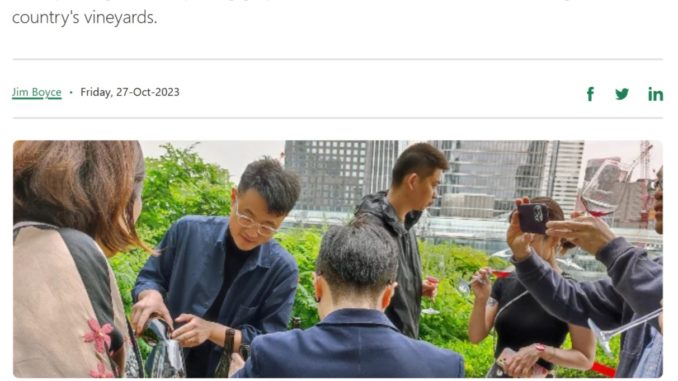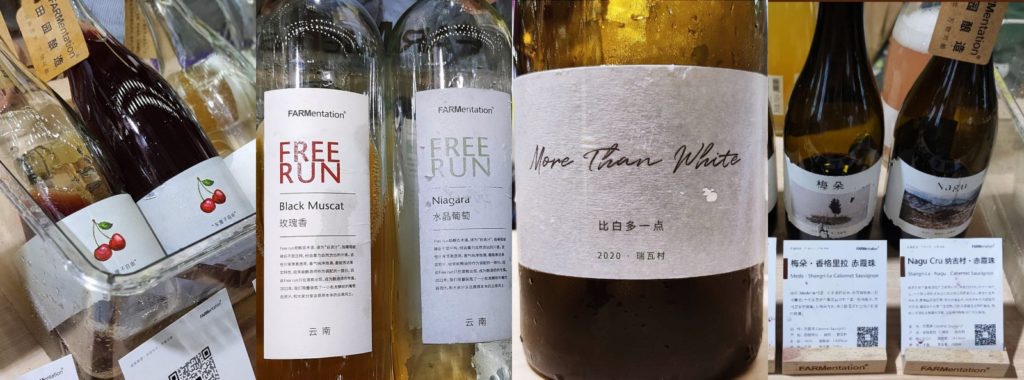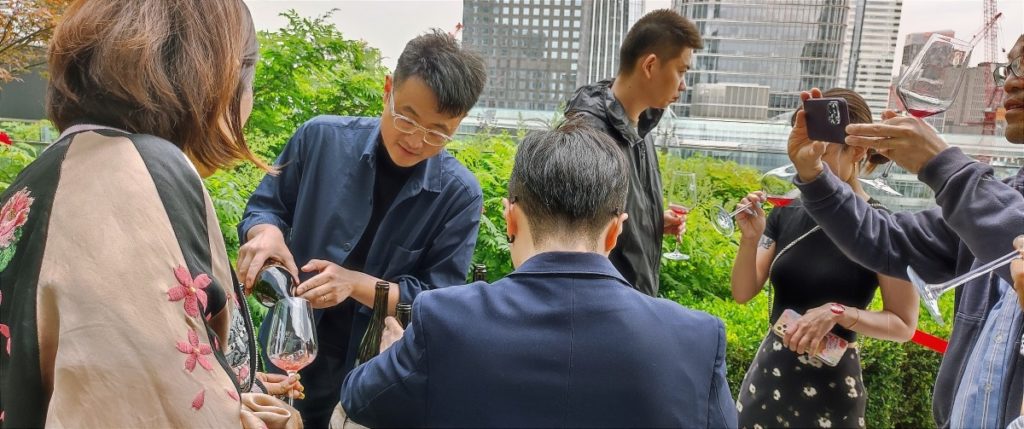
“Images of vineyards beneath blue skies, of grape-stained hands at a sorting line; of vividly colored must; of tired but happy people sharing meals after a long day. This all offers a sense of wine far beyond the tasting notes on a back label.”
Check out my Wine-Searcher story about the trend of bar and restaurant owners in China heading to the country’s vineyard and wineries to make private labels.
While the total volume of these wines is small, the trend is about more than simple production. It is also about sharing the wine-making experience via social media and creating stories that intrigue customers.
And, IMHO, it is also another example of the wine bar business finding success in much the same way as craft beer, namely, exclusive products.
One attraction of brew pubs is you can only get a given producer’s beers at that site. This makes the visit more fun and intriguing for more adventures drinkers.
The same can be said for “craft wines.” Many brands can be found across wine bars, which often leads the consumer to start scanning the label to check prices! But with this DIY wines, consumers will only be able to get them at the specific wine bar, thus giving them another reason to visit and to then possibly try and by some other wines.
Anyway, the story includes quotes by Ian Dai of Xiao Pu and Luo Yuchen of FARMentation, both working with bars and restaurants on such wines.
Plus, Jiro Hsu of BASTARD and Andrew Moo of Yaya’s Pasta House, both in Shanghai, who are creating their own private labels.
Plus, Wang Shenghan aka “Lady Penguin”, a top wine KOL making her first wine with consultant Deng Zhongxiang. (Also see my profile of Deng in a recent Wine-Searcher story.)

A few quotes:
- “The great thing is [these natural wines bars] introduce a lot of nontraditional consumers to wine, maybe because of the fruitiness or the nice labels or for whatever reason,” says [winemaker] Luo, who sees growth tied to more easy-drinking” wines.
- “We made a blend of red (Pinot Noir) and white (Chardonnay),” says Hsu. “It represents Bastard and is also a ‘glou-glou’ daily drinking wine. It’s not funky at all.”
- “If it’s possible, [the clients] pick the fruit or definitely help crush the fruit,” says Dai. “We prefer they stay until the wine is ready to go into a barrel, which is a seven-day process at least.”
- “It’s turned into wine,” wrote Wang in one post while holding a glass with a tank sample. “It’s like a mother watching her daughter grow up… It is our hope that our wine can offer a good example of Chinese ‘affordable fine wine’ to a bigger crowd.
- “In our collaborations with restaurant and bars, we find they are willing to make more experimental stuff,” says Dai. “They might make a Marselan rose while blending in a little Italian Riesling. Or make an Italian Riesling while adding a little Marselan for color.” That gives winemakers the green light for projects that might otherwise exist only in a notebook.’
Check out the full article on Wine-Searcher here.

Sign up for the Grape Wall newsletter here. Follow Grape Wall on LinkedIn, Instagram, Facebook and Twitter. And see my sibling sites World Marselan Day, World Baijiu Day and Beijing Boyce. Grape Wall has no advertisers, so if you find the content useful, please help cover the costs via PayPal, WeChat or Alipay. Contact Grape Wall via grapewallofchina (at) gmail.com.
Leave a Reply
You must be logged in to post a comment.